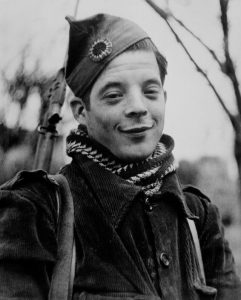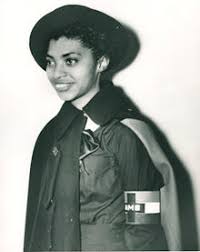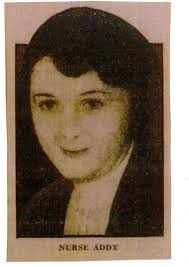In the three bloody years that followed Spain’s military coup in July 1936, a few women from various parts of the world (Priscilla Scott-Ellis from Britain, for example) volunteered to serve as nurses on behalf of fascist General Franco’s rebel Nationalists. But on the side of the democratically elected Republican Government there was almost a tidal wave of active support among women from across the world.
International Women Fighters
During the early stages of the war, Spanish women milicianas served regularly and in large numbers

in front line units – normally mixed gender POUM, communist or regular Republican army battalions. Some of these were foreign volunteers, like British artist Felicia Browne, killed in action during August 1936. Or Myrtle Eugenia “Jim” Watts who served as a front line ambulance driver for the 1,200-strong Canadian Mackenzie-Papineau Battalion. It is recorded that, among the Swiss volunteers (800), there were several women in fighting units. And, among the 3,000 Polish volunteers (Dąbrowszczacy Battalion, etc) there were also women fighters.
Nursing and Medical Teams

Apart from these, large numbers of women served in almost equally hazardous roles among nursing and medical teams. From the 2,800 American volunteers fighting for democracy in Spain, about 60 were women, like ambulance and truck driver, Evelyn Hutchins, or Afro-American nurse, Salaria Kea. From Britain and Ireland’s 2,500 volunteers, 75 were nurses – Ruth Ormseby from Sligo; Thora Siverthorne from Wales; Penny Feiwel from London; Madge Addy, from Chorlton in Manchester – who did so much to help the development of front line blood transfusions; and many, many more. Madge Addy, like most of these women, would have drawn no distinction between the fight against fascism in Spain and the wider war against fascism that followed in 1939 – during which she apparently served as an Allied agent behind enemy lines.

Second Front
Meanwhile, the Spanish Civil War had a second front – the enormous charity operations that went on around the world on behalf of the various Spanish relief and Basque children’s committees. Some of this work was undertaken in Spain itself. Like the role played by Frida Stewart from Cambridge in refugee camps, first in Murcia, and then in France. But thousands more involved themselves at home, in the UK and elsewhere. Raising funds or organising supplies, and perhaps typified by Bessie Berry, who would later marry the last commander of the International Brigade British Battalion, Sam Wild.
International Women Journalists and Politicians
At the same time, women journalists and politicians were frequently at the front, observing conditions and reporting on behalf of Republican Spain – German photographer Gerda Taro, killed at Brunete in July 1937; American writer Martha Gellhorn; British journalist Elizabeth Wilkinson who reported on the bombing of Guernica in April 1937; Labour MP Ellen Wilkinson, who was frequently in the battle zones; the Conservative Duchess of Atholl, whose outspoken condemnation of Franco, Hitler and Musolini earned her the title The Red Duchess; and Eleanor Rathbone, who had already done so much in the cause of women’s suffrage.
This is necessarily only a small sample of the many thousands of women who played a role, 80 years ago now, on behalf of Spain’s Republic. But whose legacy, I hope, will continue to burn brightly for many years to come.
I have read this article and it’s very interesting to read about these very brave women, I am 70yrs old and if I had been around then I would have been very proud to be able to be part of this situation, I hope I may be wrong but I dont think we would have the same type of grit that these women fought for. Very very proud of them bless them all.
Hello Margaret. Wonderful to hear from you and serious apologies for not getting back to you sooner. For some strange reason, the website’s stopped notifying me when there’s mail to be read. Still, I’m really pleased you enjoyed the article. I’m 69 myself, by the way, and yes, these were remarkable women. My article only “scratches the surface” of their story, really. But I count myself blessed to have worked closely with a whole batch of women, from different countries, including here in the UK, who very definitely have similar levels of grit – and it’s them, as much as anything, that inspire much of my writing. Thanks for being in touch and hope you’re OK. Best regards. Dave
Hello. Iam trying to trace my dads aunt who supposedly helped in the spanish civil war. Her name was Vera Mabel May. She was born in 1910 in London.
Hoping you can help.
Thanks Julie. I’m not familiar with the name but will reply in more detail by e-mail. Best regards.
Hi David, just to point up that Gerda Taro was, in fact, German, not Polish. Understandable in a way — I thought she was Hungarian for many years, until I visited an excellent exhibition of her work here, in Barcelona, in 2009.
By the way, the POUM was most certainly NOT anarchist — although many anarchists did fight in POUM militia columns and sections of the POUM worked closely with CNT. The principal anarchist organisations were CNT, FAI and FIJL (the Iberian Federation of Libertarian Youth), Mujeres Libres (Free Women) and the Black Cross. All the best. Not yet read any of your books but am looking forward to reading the Assassin’s Mark and Until the Curtain Falls.
Thanks Bill. Corrections now made! Best regards.
Hi David, I have been trying to find out what I can about women who were involved in the Spanish Civil War.
There was a story in my family that my grandmother was one of the first women to drive across the Pyrenees. Was she involved?? I don’t know.
I know nothing more, my father died in an accident in 1962 here in Australia long before I had any interest in family history.
She was a Welsh farmer’s daughter Catherine Edmunds, became Catherine George when she married my grandfather who died young, she then married a miner in South Wales and became Catherine Davies. I believe she was known as Kat or Kitty.
I have read that there was quite a large Welsh contingent involved.
If you have any information that would help I would appreciate it.
Best Regards, Ed George
Hello Ed. Great to hear from you. And interesting! I’m no expert on this but I know of only one or two British women who actually went to “fight” in Spain. However, researchers now have the names of 342 women from 40 different countries who went to Spain as nurses and similar, a few of them as ambulance drivers. Many of them weren’t necessarily trained as nurses and it’s probable that the total number of such women was closer to 600, and more than half of them English-speakers. Among them, a whole batch of women from Wales and quite a few of them very famous. At least 200 men and women from Wales. Thora Silverthorne. Margaret Powell. Others. The historian and writer Angela Jackson (now living in Cataluña) has done a lot of work uncovering the stories of British nurses in Spain. It’s a hugely complex story, this one of nursing during the Spanish Civil War and, though you won’t find any clues here about your grandmother, this article is hugely illuminating about the problems: https://connect.springerpub.com/highwire_display/entity_view/node/114911/full. There’s a recently updated (2020) edition of Angela Jackson’s book “British Women and the Spanish Civil War” which I’m now going to buy. I doubt that we’ll find your grandmother in the pages though if (as I’m fairly certain) she went out to Spain as a nurse, the book would certainly bring you close to her experiences and maybe, just maybe provide a clue. If you want to keep in touch, just email: davemccall@davidebsworth.org. And best regards. Dave